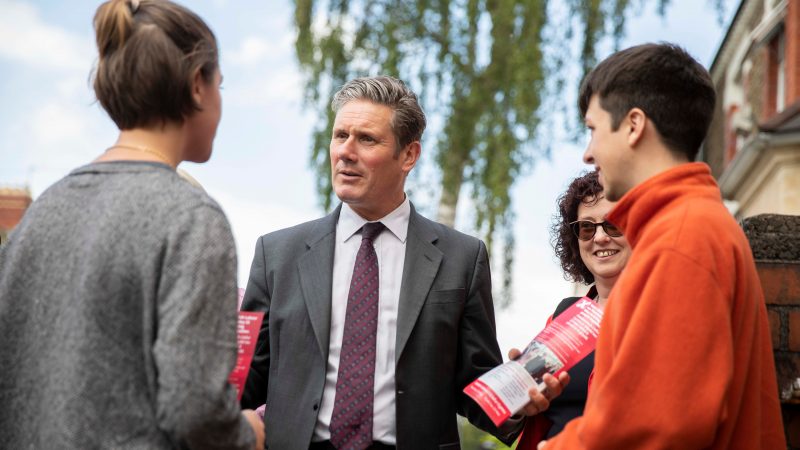
Over the past few months, at think-tank convenings, briefings with journalists and well-meaning panels on the future of the left, I’ve heard the same thing over and over: Keir Starmer needs to set out a vision. Friends I respect who work in parliament have texted, frustrated, describing the general sense of malcontent: “Nobody knows what he stands for”, “He has to be bolder”, “He needs to show us the future.”
Let’s back up a moment. Since Keir Starmer became leader, Labour have been consistently climbing in the polls, faster, in fact, than at any point in almost two decades. They have successfully prosecuted an argument that the government has failed to handle the greatest crisis it has faced: coronavirus. And they have begun to establish that most elusive of perceptions among voters: competence. Voters consistently believe that Boris Johnson is “out of his depth” while Keir Starmer is “principled” and “effective”.
I am running for council in Bury in the most marginal seat in the country. On dark, cold Tuesday nights, I have not spoken to a single voter who complained that Keir lacks vision – party members, sure, but not voters.
Here is what voters tell me. People are still surprisingly tolerant of the government’s ineptitude, because they see the pandemic as an external force for which no government could have been prepared. As we saw in America, we must be careful not to assume voters will automatically blame those in power for their handling of the pandemic.
There is also a deeper impetus to that instinct. In one recent conversation, an elderly resident explained that she wants the government to succeed not because she likes Boris Johnson or the Conservatives, but because she wants her country to thrive. She felt this country has suffered from years of incompetent opposition. Like others, she was feeling the economic hardship of this pandemic and was grateful to have an opposition leader she trusted to hold the government to account. Voters know that scrutiny makes government better – that is how our democracy works.
The clamour for “vision” is a refrain unique to the Westminster bubble. It implies that to win elections and govern effectively, progressive leaders need an entire political philosophy, their own original view about the purposes of the modern state and the future of capitalism. They don’t, and more importantly, even when they have one, it is not the job of an opposition leader in his or her first year to spend time telling voters about it. Especially when voters have immediate, concrete concerns about the wellbeing of their families, communities and country.
Opposition leaders have four years to show voters who they are and what they believe. They have to build the case for power slowly, with sensitivity to political context and what’s happening in voters’ lives. Sure, when the next general election comes, voters will need to know what Keir Starmer believes about the future of the UK constitution, or how to tackle climate change and regulate tech, issues that Labour should lead on. But they will pick up signals not from policy-heavy speeches about “vision”, but from principled stances Labour takes at key moments of political choice.
Labour’s job right now is not to navel-gaze or preach about the future of progressive politics – and I say that as someone writing a book about the regulation of AI and big tech. Our job is to stay focused on the pressures families across the country are facing, to prioritise security and investment in communities, and – when we can – to articulate a clear view about Britain’s identity in the world now we have left the EU.
Here in the Red Wall, voters don’t want Labour’s vision. They want a party that stands up for the values they believe in and a leader able to lead the country with the competence the moment demands. That is exactly what Keir Starmer is doing.




More from LabourList
Turning the page? Labour’s recovery in the polls show a path to 2029 victory
Restoration announce recommendations for NEC candidates
‘Factionalism at the top is weakening Labour – and handing a gift to Reform’